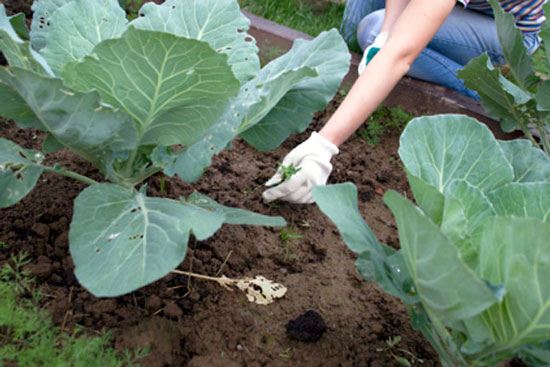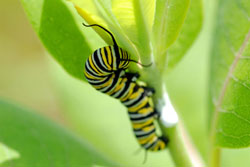Types of weeds
Annual weeds are like many of the vegetable varieties. There are cool-season annual weeds and warm-season annual weeds. Cool-season weeds, such as chickweed, generally germinate during fall and winter in the garden. They produce flowers and seeds in the spring. Although the weeds disappear, the seeds lie dormant in your soil through the summer. If these weeds are allowed to produce seeds, you'll have the same problem the following season. Warm-season annuals are much the same, but their growing season is spring through fall.
PERENNIALS: Perennial weeds persist year after year, some with deep taproots, others with a long-spreading network of roots. Some perennial weeds will spread through the garden like wildfire... don't wait for this to happen! A beginning gardener can easily be overwhelmed by such a problem.
| ANNUALS | PERENNIALS |
|---|---|
| Bindweed | Burdock |
| Chickweed | Canada Thistle |
| Ground Ivy | Dandelion |
| Lambs-quarters | Plantain |
| Pigweed | Poison Ivy |
| Purslane | Giant or Common Ragweed |


